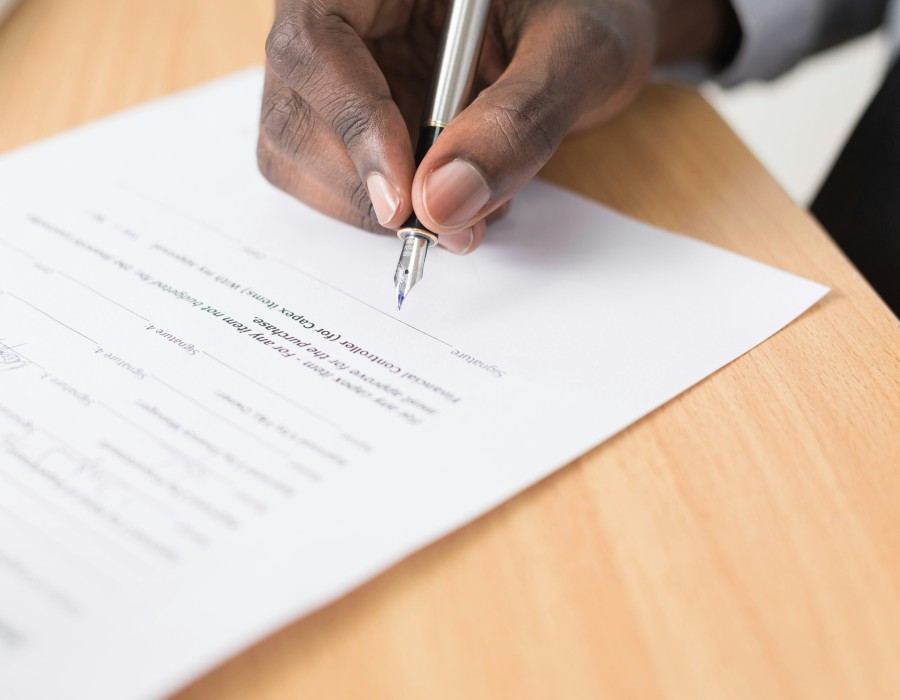A notary public plays an essential role in authenticating legal documents, administering oaths, and preventing fraud. Whether you're finalizing a business contract, completing adoption paperwork, or executing a real estate deal, it's critical to ensure that the notary you're working with is legitimate and authorized to perform their duties. Verifying a notary’s credentials is a straightforward but important process to protect yourself and the validity of your documents. Here’s a step-by-step guide on how to verify a notary’s credentials.
1. Check the Notary’s Commission Certificate
Every notary public must be commissioned by their state government or a similar regulatory body. The commission certificate is a formal document that proves the notary has met all necessary requirements, such as completing training and passing an exam. It typically includes:
- Notary’s Name: The full legal name of the notary.
- Commission Number: A unique number assigned to the notary by the commissioning authority.
- State and County of Commission: Indicates the jurisdiction where the notary is authorized to operate.
- Commission Expiration Date: Verifies that the notary's commission is still valid and has not expired.
Ask to see the notary’s commission certificate, and make sure the information matches the notary’s identification and the details on any documents they notarize.
2. Verify the Notary’s Credentials with the State
Each state maintains a database of its commissioned notaries, which can typically be accessed online. To verify a notary’s credentials, you can:
- Visit the State’s Notary Database: Most states have an online notary search tool available on the Secretary of State’s website or a similar government site. By entering the notary’s name or commission number, you can confirm whether the individual is an active and registered notary.
- Contact the Secretary of State’s Office: If an online tool is not available, you can contact the Secretary of State or the appropriate regulatory office by phone or email to verify the notary’s status.
Be sure to check for any updates regarding the notary’s commission status, such as suspensions or revocations, which could affect their ability to notarize documents.
3. Examine the Notary’s Seal and Signature
A notary public uses a unique seal or stamp to authenticate notarized documents. This seal typically includes:
- Notary’s Name: The full name of the notary, which should match their commission.
- State and County of Commission: The jurisdiction where the notary is authorized.
- Commission Expiration Date or Commission Number: Depending on the state, the seal may include the notary’s commission expiration date or number.
The notary must also sign the document as part of the notarization process. Compare the notary’s signature on the document with the signature on their commission certificate (if available) or identification.
4. Ask for Identification
Notaries are required to verify the identity of the people signing the documents they notarize, and in some cases, it’s appropriate to verify the notary’s identity as well. Ask the notary to provide government-issued identification, such as a driver’s license or passport. The ID should match the name on the commission certificate and notary seal.
If the notary is performing their duties as part of an organization (like a law office or financial institution), you can also check their professional credentials with that organization.
5. Verify Bonding or Insurance
Many states require notaries to be bonded, which provides financial protection in case the notary commits an error or fraud that causes harm. Notary bonds vary in amount depending on the state, but they are intended to protect the public from financial loss due to misconduct. Some notaries also carry errors and omissions (E&O) insurance, which further protects clients from losses due to mistakes made during notarization.
You can verify whether a notary is bonded by asking to see their bond certificate or contacting the bonding company directly. This is especially important when notarizing high-value transactions, such as real estate deals.
6. Look for Red Flags
Be aware of red flags that might indicate a notary is not properly credentialed:
- Unclear or Missing Seal: A notary should always use their official seal or stamp when notarizing a document. If a notary refuses to provide a seal or the seal lacks critical information, it’s a sign that something may be wrong.
- Expired Commission: An expired commission means the notary is no longer authorized to perform notarial duties. Always check the expiration date on the notary’s certificate or seal.
- Improper Request for Personal Information: A notary should not ask for excessive personal information beyond what is required to complete the notarization process. Be cautious if a notary requests sensitive information that doesn’t seem relevant to the transaction.
7. Verify the Notarization Requirements for Your Document
Different types of documents have specific notarization requirements. Some documents, such as affidavits and contracts, may require a specific form of notarization, such as acknowledgment or jurat, which the notary should be familiar with. Additionally, check if your state requires additional steps, such as witness signatures.
Before completing the notarization, ensure the notary is familiar with the specific requirements of your document and knows the proper procedure for completing it legally.
Conclusion
Verifying a notary’s credentials is a crucial step to ensure that your legal documents are properly authenticated and enforceable. By checking their commission certificate, confirming their status with the state, reviewing their seal and signature, and asking for identification, you can protect yourself from potential fraud or invalid notarizations. Working with a properly credentialed notary gives you the peace of mind that your important documents are in the hands of a qualified professional.





Comments